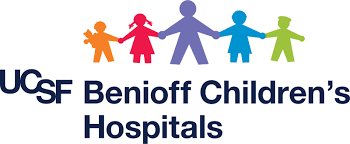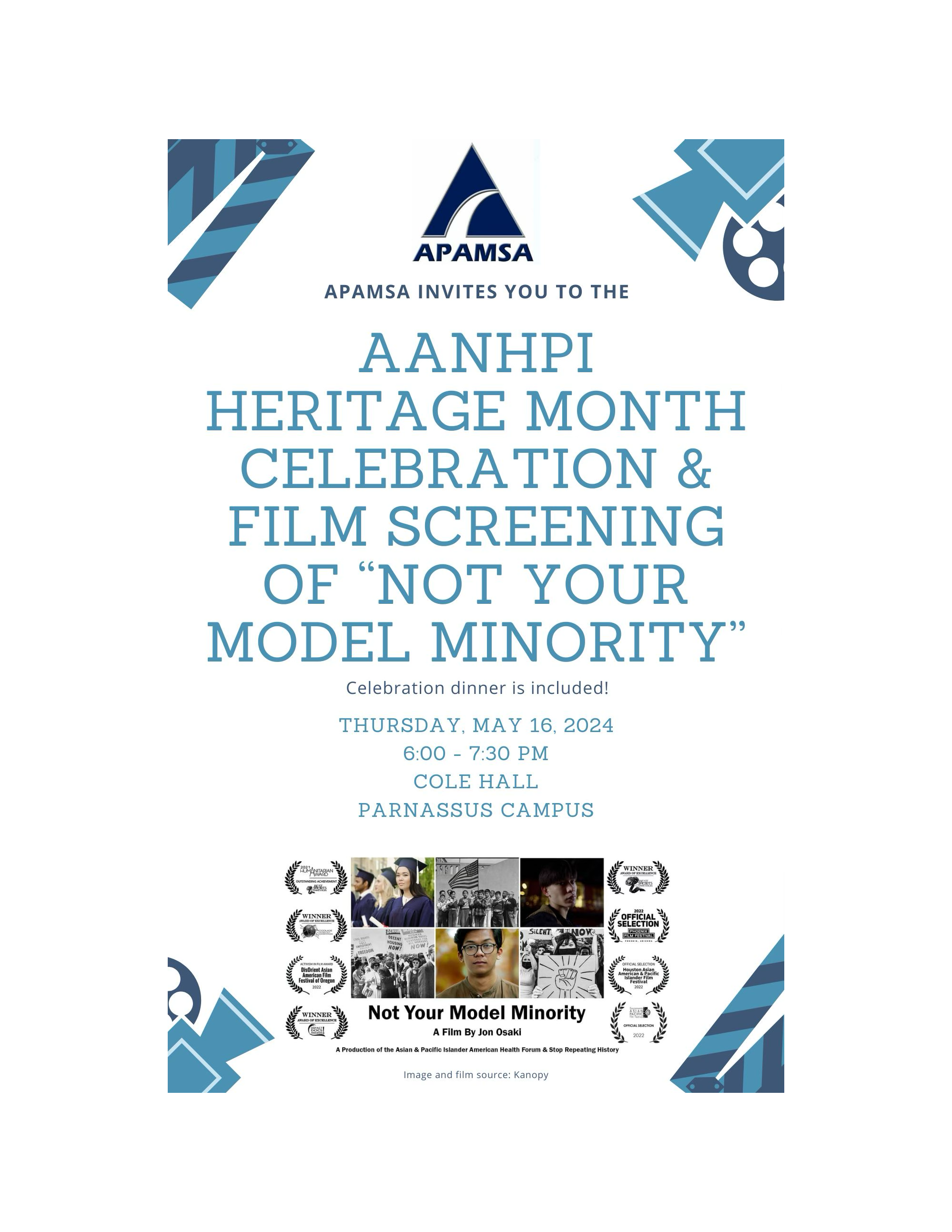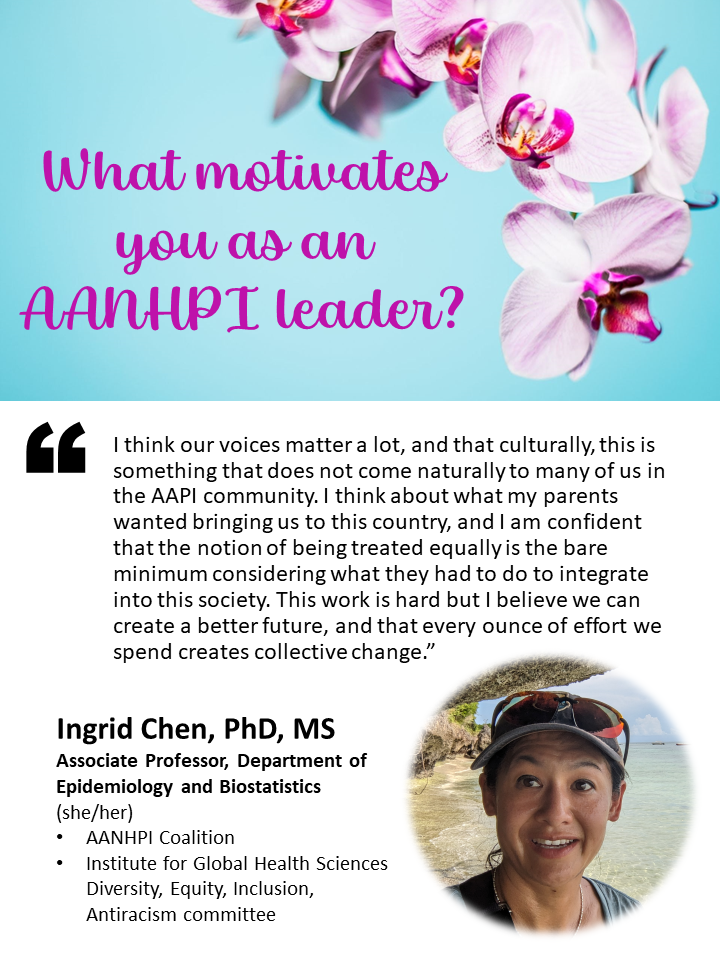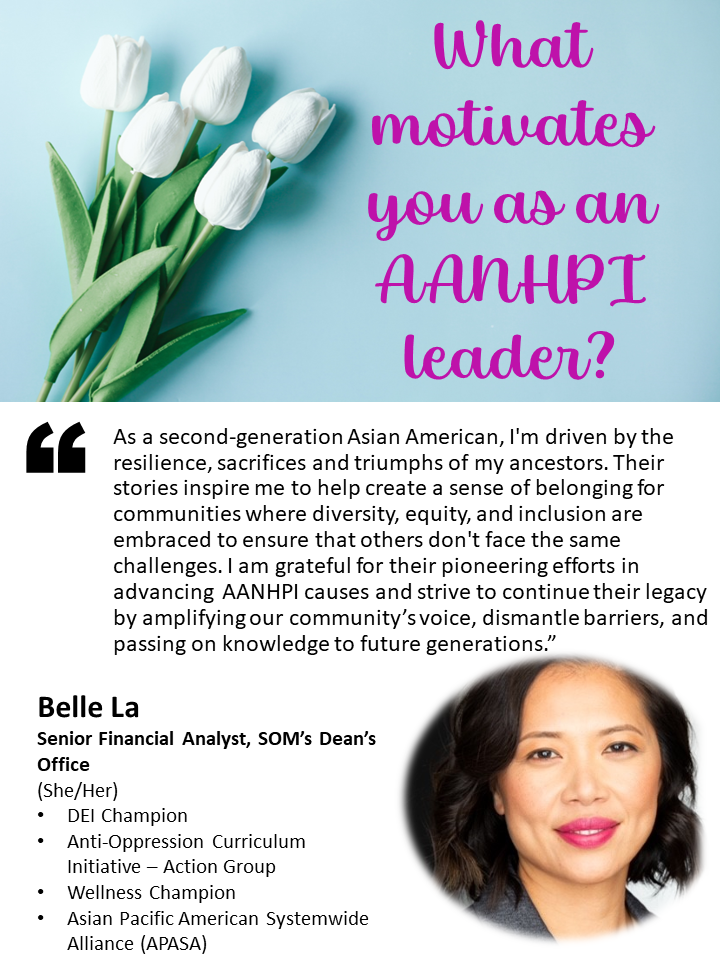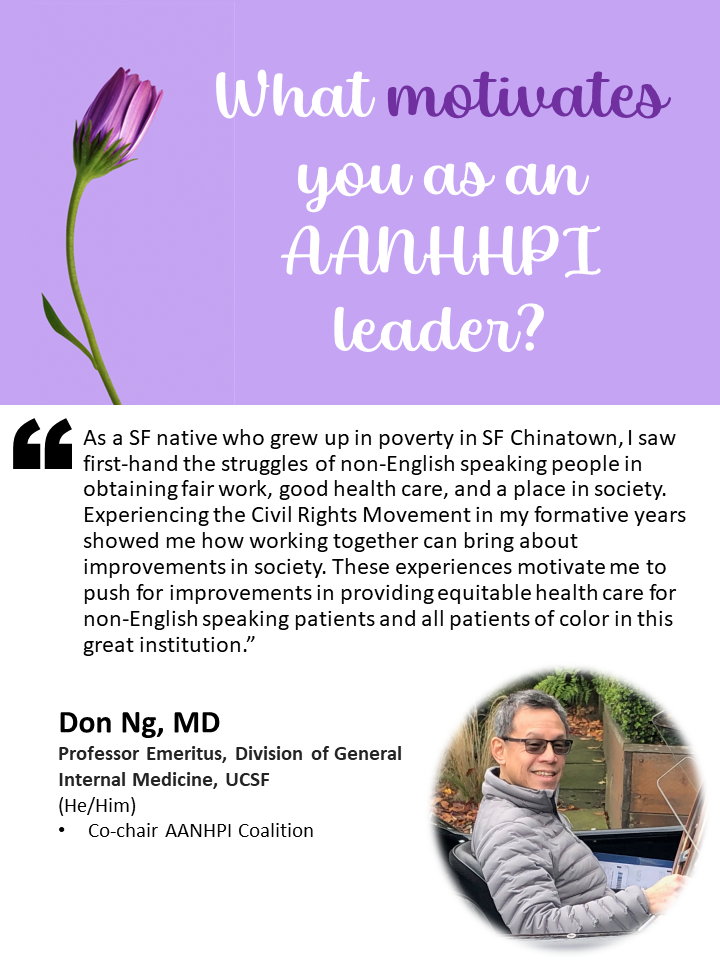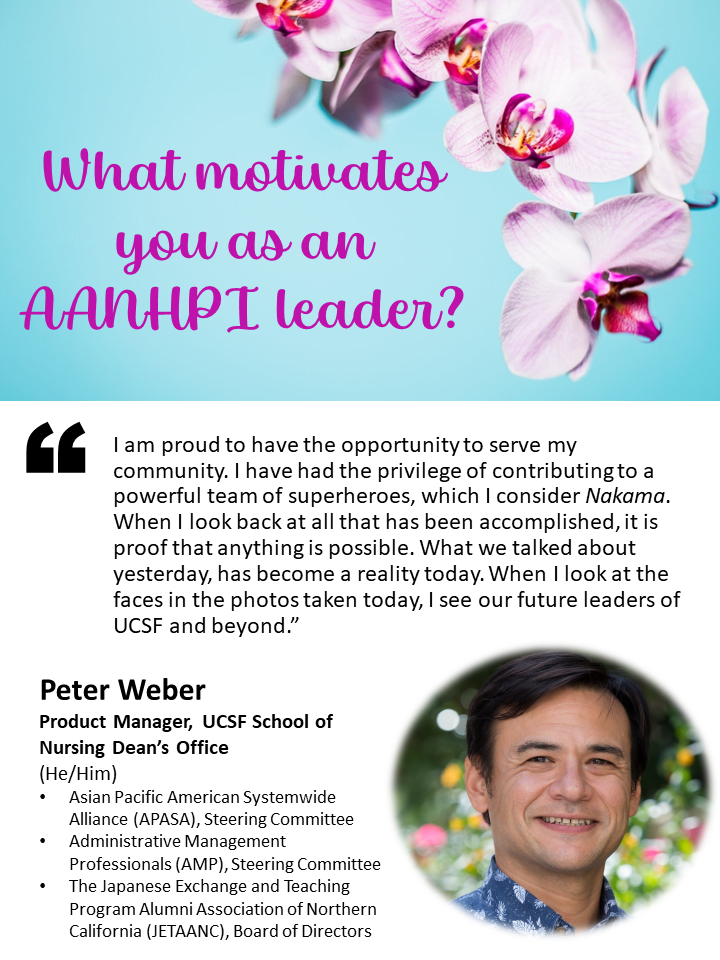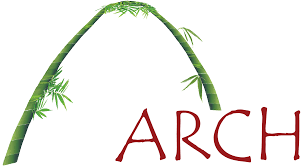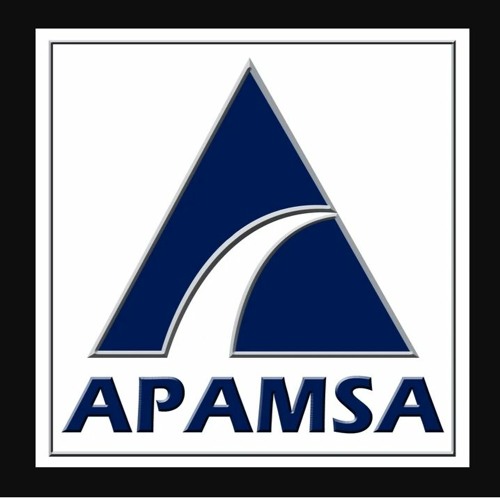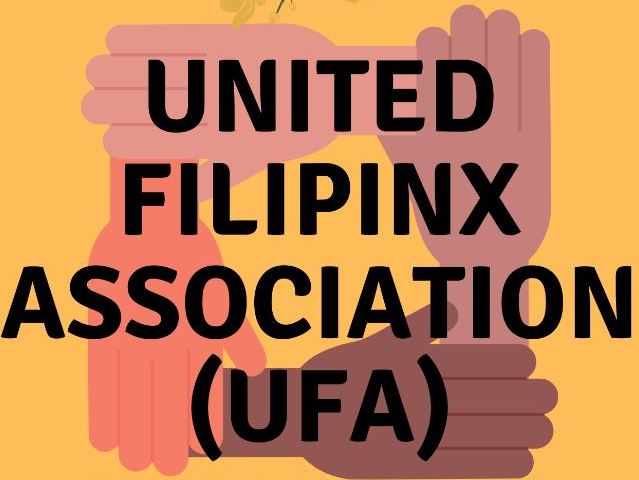Asian American, Native Hawaiian, Pacific Islander Heritage Month 2024
May is Asian American, Native Hawaiian and Pacific Islander (AANHPI) Heritage Month, which celebrates all of the Asians, Native Hawaiians, and Pacific Islanders in the United States who have made the country what it is today. During this month, the country celebrates the achievements and remembers the struggles endured by Asian Americans, Native Hawaiians, and Pacific Islanders.
The month of May was chosen for two reasons. First, to commemorate the immigration of the first Japanese to the United States, a young fisherman named Manjiro, who arrived May 7, 1843. Second, May marks the anniversary of the completion of the transcontinental railroad on May 10, 1869. The majority of workers on the transcontinental railroad were Chinese immigrants, who laid the tracks and were responsible for most of the dangerous and heavy manual labor tasks.
Asian Pacific Heritage Month Zoom Backgrounds
Please download any of these virtual backgrounds and add them to your Zoom by following these steps:
- In the Zoom.us desktop client, go to 'Settings' as noted above and select 'Visual Background'.
- Using the (+) icon, upload your new background.
ZOOM BACKGROUNDs 1 Zoom Backgrounds 2
Additional info at the UCSF Multicultural Resource Center webpage.
UCSF EVENTS
Nurses Week and AANHPI Month Celebrations: Nurse Unseen Film Event
Monday, May 6 | 7:00pm to 9:00pm (hybrid)
During this year’s AANHPI (Asian American, Native Hawaiian, and Pacific Islander) heritage month and Nurses Week celebrations, we are excited to invite you to UCSF United Filipinx Association (UFA) and Philippine Nurses Association of Northern California (PNANC) free film screening event of “Nurse Unseen” to champion Filipinx nurses and increase engagement with Filipinx communities at UCSF and beyond! Nurse Unseen is a feature documentary that explores the little-known history and humanity of the unsung Filipino nurses risking their lives on the front lines of a pandemic, thousands of miles from home. For more details about the film, please visit their website: https://www.nurseunseen.com/
Where to watch this film:
- “At-home” access to the “Nurse Unseen” film – only available between May 1-15, 2024: https://watch.showandtell.film/watch/nurseunseen-ucsf
- In-person viewing sessions (a calendar invite will be sent for each specific location):
- Carr Auditorium at ZSFGH
- Cole Hall at Parnassus
- Mabuhay Health Center in SF SOMA District (non-UCSF campus site)
During this event, you will have a chance to network, enjoy free refreshments / giveaway items, ask questions/connect with the Nurse Unseen film crew, and more.
Here is the didactic recording of the intro., Q&A, and outro of the May 6 event: RECORDING
Additionally, on behalf of UCSF United Filipinx Association (UFA), huge kudos to our event endorsers:
- APASA (within UCSF ODO diversity committees)
- Center for Global Nursing (within UCSF Institute for Global Health Sciences)
- Mabuhay Health Center (SF SOMA District)
- Philippine Nurses Association of Northern California - Home (wildapricot.org) (PNANC)
- UCSF Benioff Children’s Hospitals (BCH)
- UCSF Committee on the Status of Women
- UCSF Health Center for Nursing Excellence & Innovation (CNEI)
- UCSF School of Nursing (SON)
- Zuckerberg SF General Hospital (ZSFGH)
AANHPI Heritage Month Mixer
Wednesday, May 15 | 5 pm - 7 pm
Sparks Social @ 601 Mission Bay Boulevard North, San Francisco, CA 94158
Join us for our first AANHPI community social event! The event is sponsored by APASA, AANHPI Coalition, Finance and Administrative Services (FAS), Office of Diversity and Outreach (ODO), and United Filipinx Association (UFA).
The event is free and all UCSF members are welcome. Check here for registration and more info soon.
Not Your Model Minority Film Screening
Thursday, May 16, 2024 | 6pm - 7:30pm
Cole Hall, Parnassus Campus
The Asian Pacific American Medical Students Association (APAMSA) invites for your a special film screening of "Not Your Model Minority," a film by Jon Osaki. Celebration dinner is included!
About the film: Not Your Model Minority explores the origins of the stereotype and the intersections with past and present anti-Asian violence. This documentary film also examines the harm created by this divisive narrative as well as opportunities to build power and make progress towards addressing systemic racism in America.

AANHPI Leadership Panel
Tuesday, May 21, 2024 | 4:00pm to 5:00pm (virtual) - POSTPONED
UCSF Asian Pacific American Systemwide Alliance (APASA), in partnership with Office of Diversity and Outreach is pleased to invite all UCSF members to join the 4th Annual Asian American Native Hawaiian Pacific Islander (AANHPI) Leadership Panel Discussion.
This event will spotlight different AANHPI leaders at UCSF to celebrate AANHPI Heritage Month. We will have a dynamic conversation on identity, career trajectory, and AAPI workplace issues, such as the bamboo ceiling, with the following leaders:
- Purba Chatterjee, Associate Director, Global Health Research, Bixby Center for Global Reproductive Health
- Peter Ching-Hong, Professor of Medicine and Associate Dean for Regional Campuses, School of Medicine
- Pamela Ling, Professor of Medicine and Director of the UCSF Center for Tobacco Control Research and Education
- Wylie Liu, Executive Director, Center for Community Engagement
The panel will be moderated by Won Ha, Vice Chancellor of Communications.
Trivia Hour
Wednesday, May 29, 2024 | 12:00pm to 1:00pm (virtual)
Join APASA's trivia hour to test your knowledge and have some fun. Poll Everywhere will be used run the trivia. You will need to have a web browser open or the Poll Everywhere App to participate.
Meeting ID: 872 0481 3382 | Passcode: 772703
Status of AANHPIs at UCSF
Friday, May 31 | 12 pm - 1:30 pm (Zoom and in person)
Location: HSW301, Parnassus
Join us as we present the current status of Asian Americans, Native Hawaiians & Pacific Islanders within our UCSF community, including our AANHPI workforce demographics and Patient Experience by race/ethnicity and language. Appetizers will be provided Sponsored by the AANHPI Coalition.
Presenters:
- Jeffrey Chiu, VP/Assistant Vice Chancellor of Human Resources
- Angela Berner, Patient Experience Analytics Team Manager
- Danielle Morrison, PhD, Patient Experience Research Program Director
- Rupal Shah, MD, MS, Associate Director of Pulmonary, Critical Care, Allergy and Sleep Medicine
- Heather Nichols Beck, CPXP, Patient Experience Business Partner
- Jane Jih, MD, Associate Professor of Medicine, Division of General Internal Medicine
Panelists:
- Peter Chin-Hong, MD, Professor of Medicine and Associate Dean for Regional Campuses, School of Medicine
- Alka Kanaya, MD, Professor of Medicine, Epidemiology & Biostatistics
- Catherine Lau, MD, Professor of Clinical Medicine
- Jane Jih, MD, Associate Professor of Medicine, Division of General Internal Medicine
- Ronald H. Labuguen, M.D., Clinical Professor, Department of Family and Community Medicine, Medical Director, UCSF Primary Care at Bayfront
ASIAN AMERICANS, NATIVE HAWAIIANS, & PACIFIC ISLANDERS AT UCSF
What Motivates You as an AANHPI Leader?
Giving flowers to our AANHPI community at UCSF for their unsung dedication, passion, energy and time to improve the climate and belonging for everyone.
AANHPI Groups and Departments at UCSF
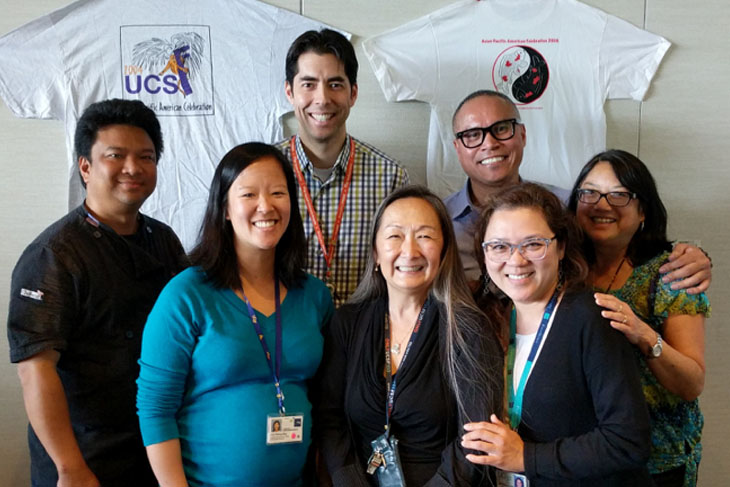
Asian Pacific American Systemwide Alliance (APASA)
To promote professional and social relations within UCSF, as well as the rich and diverse cultural heritage of all Asian communities. APASA works with other minority organizations to address issues of equality, fair labor practices and diversity at UCSF.

The UCSF Asian Heart and Vascular Center is a cardiovascular care hub for the Asian comunity, the fastest-growing population in San Francisco.
We respect the cultural differences that exist in the Asian community. Patients receive language-appropriate information and educational materials about heart disease and how to prevent it. The center also participates in research to better understand the metabolic and genetic differences of the Asian community.
- Association of Chinese Students & Scholars (learners)
- Asian Faculty Group (faculty)
- Asian Health Caucus (learners)
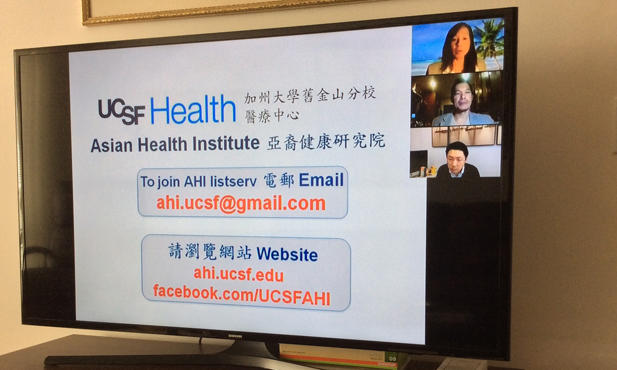
Asian Health Institute
As the large population of Asians continues to take a prominent presence within the San Francisco and Bay Areas, the University of California at San Francisco (UCSF) has established the Asian Health Institute as one of the newest departments to build the important bridge with the Asian community to achieve health parities and improve medical access.
UCSF AAPI Coalition Joint Statement
A Joint Statement to address justice and inclusion for AAPI at UCSF was developed by a new coalition of the various UCSF Asian groups, students, staff, and faculty against anti-Asian hate and exclusionary practices. The Joint Statement outlined 6 recommendations and a proposed action plan intended to make a positive impact on the learning, clinical, research and working environment for AAPI, and to further advance the DEI initiatives at UCSF. The joint statement was endorsed by over 20 campus departments/groups and more than 2000 UCSF community members including our students/learners, staff, faculty, and researchers. The Joint Statement was presented to UCSF Chancellor Sam Hawgood and his leadership team on June 24, 2021, to discuss a plan to address the 6 recommendations.
This is a historical moment for all AAPI at UCSF. The COVID-driven verbal and physical assaults since March 2020 have angered and terrorized many in the AAPI community at UCSF beyond their tolerance limits, giving a burst of strength and courage to unify us as a strong coalition that crosses all socioeconomic, educational and status divides. It is the goal of the UCSF AAPI Coalition to collaborate with our communities and allies to use the Statement and the Appendix to strategically address some long-time deficiencies and issues affecting our AAPI community. We are only at a starting point, and more action items can be developed later.
Read the full AAPI Coalition Statement here.
ANNUAL AANHPI EVENTS 2024
List of major AANHPI annual events and festivals around the Bay Area in 2024
- February 16 - 18 | Tet Festival, San Jose
- February 24 | Chinese New Year Parade, San Francisco
- February 24 - 25 | Lantern Festival, Oakland
- March 19 | Nowruz Festival, Persian New Year
- April 13 - 14 | Cherry Blossom Festival, San Francisco
- April - June | United States of Asian American Festival, San Francisco
- May 9 - 19 | CAAMFest 2024, Asian Film Festival by the Center for Asian American Media
- May 11 | Taiwanese American Cultural Festival, San Francisco
- May 12 | AAPI Fest, Daly City
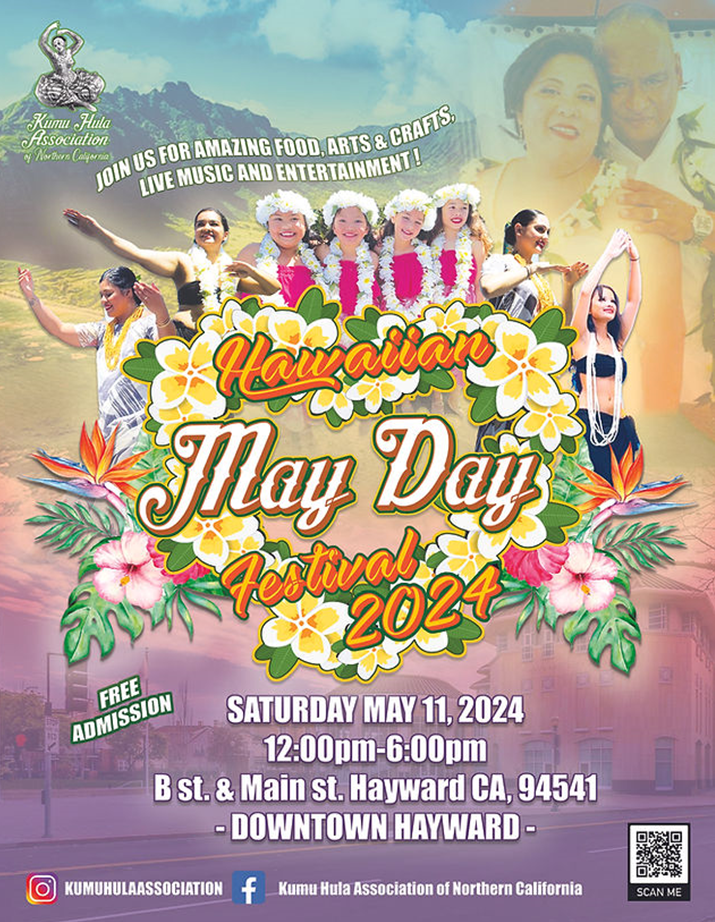
- May 18 | Indonesian Bazaar, San Francisco
- May 18 | Multicultural Spring Festival, San Francisco
- May 19 | Islands by the Bay Festival, San Francisco
- May 11 | May Day Hawaiian Festival, Hayward
- June 22 | Soy and Tofu Festival, San Francisco
- June 1 | Pista Sa Nayon, Vallejo
- August 3 - 4 | Nihonmachi Street Fair, San Francisco
- August 10 - 11 | Pistahan, San Francisco
- September | Autumn Moon Festival, San Francisco
AANHPIs in the SAN FRANCISCO BAY AREA
The Bay Area is one of the most diverse regions in the United States. People of color became the majority of the population in the region around 1980, according to U.S. Census Bureau data, around 65 years before the United States will be majority people of color. Today, 27 percent of Bay Area residents — around 2 million people — identify as Asian American or Pacific Islander, and the population is expected to grow rapidly in the coming decades. But Asian Americans — whether immigrants or native-born — include a variety of ancestral backgrounds and cultures and live in different parts of the Bay Area. Here is a growing list of AANHPI "towns" to visit around the Bay Area.
Chinatown, Oakland
One of the oldest Chinatowns in the United States, Oakland Chinatown was settled in the 1850s, shortly after the gold rush. In 1906, the San Francisco earthquake and fire wrecked San Francisco Chinatown, causing thousands of San Francisco Chinese survivors to move to Oakland to rebuild their lives in the East Bay.
- Oakland Asian Cultural Center (OACC) has changing exhibitions year round to showcase arts and cultures in Asia. Performances and programs are scheduled during evenings and weekends.
- Oakland Public Library Asian Branch is located at the Pacific Renaissance Plaza. It provides the latest Asian books and DVDs in 8 different Asian languages including Chinese (Traditional/Simplified Chinese, Cantonese/Mandarin), Korean, Vietnamese, Japanese, Tagalog, Hindu, and etc.
- Do you know that fortune cookies were invented in Northern California? The Fortune Cookie Factory is one of the oldest fortune cookie factories in the bay area. You can schedule a 15-20 minutes tour with a small fee to learn the history and customize your own fortune cookies!
Chinatown, San Francisco
Chinatown centered on Grant Avenue and Stockton Street in San Francisco, California, is the oldest Chinatown in North America and one of the largest Chinese enclaves outside Asia. It is also the oldest and largest of the four notable Chinese enclaves within San Francisco. Since its establishment in the early 1850s, it has been important and influential in the history and culture of ethnic Chinese immigrants in North America.
Japantown, San Francisco
Discover San Francisco’s Japantown, the vibrant heart of the Bay Area’s Japanese and Japanese American community since 1906. Amidst its bustling streets, you’ll encounter an authentic tapestry of Japanese culture, from traditional eateries to contemporary shops. San Francisco boasts the largest and oldest of the three remaining Japantowns in the U.S., the others being Little Tokyo in Los Angeles and Nihonmachi in San Jose, all nestled within California.
A stroll through Japantown offers a delightful immersion into Japanese traditions, blending the allure of Osaka with modern influences. From anime and kimono boutiques to sushi joints and manga stores, Japantown is packed into a six-block radius along Post and Sutter streets in the Western Addition neighborhood.
Japantown, San Jose
San Jose's Japantown (Nihonmachi) developed from where the immigrant Japanese first settled in Santa Clara Valley. More than a century following its humble beginnings, it remains one of the last three historical Japantowns in the United States.
The traditional approach to making manju is still cherished in Japantown at Shuei-do Manju Shop. For fresh produce, visit the weekly farmers’ market, open year-round. For sushi enthusiasts, Kazoo and Minato serve as local favorites. The Japanese American Museum of San Jose showcases a unique collection of permanent and rotating exhibits, chronicling more than a century of Japanese American history.
Little Manila, Daly City
Daly City itself is known as Little Manila by a lot of people, including in the Philippines, because it has the largest concentration in the U.S. of people of Philippine background. Roughly 34% of Daly City’s population is of Filipino descent, according to a letter written by Daly City officials in 2020. You can find Filipino restaurants or other businesses at the Skyline Shopping Center on the west side, Westmoor Ave. near Skyline Blvd. But if you just look around, you'll see businesses everywhere owned by or marketed to Filipinos.
- 10 Great Filipino Restaurants in Daly City - Eater
- The Pilipino Bayanihan Resource Center
- Daly City: The new Filipinotown
Little Manila, Stockton
Little Manila community in Stockton was the largest population of Filipinos in the world outside of the Philippines from the 1920s to the 1960s, due to job in the agricultural industry in California's Central Valley. Little Manila Rising is a nonprofit organization founded to fight the erasure of Little Manila by developing equitable solutions to the effects of historical marginalization, institutionalized racism, and harmful public policy.
The project Little Manila Virtually Recreated was completed at University of the Pacific (United States) to recreate the historical Little Manila neighborhood in virtual reality.
Vietnam Town, San Jose
With over 180,000 residents, Vietnam Town has more Vietnamese residents than any other city in the world outside of Vietnam, according to Visit San Jose. Located in East San Jose, between Story and Tully roads, Vietnam Town is the epicenter of Vietnamese culture in San Jose. Combining both traditional Vietnamese and modern American culture, Vietname Town gives visitors unique opportunities to experience authentic Vietnamese food and drink, as well as to learn about the history of the Vietnamese population in the area.
